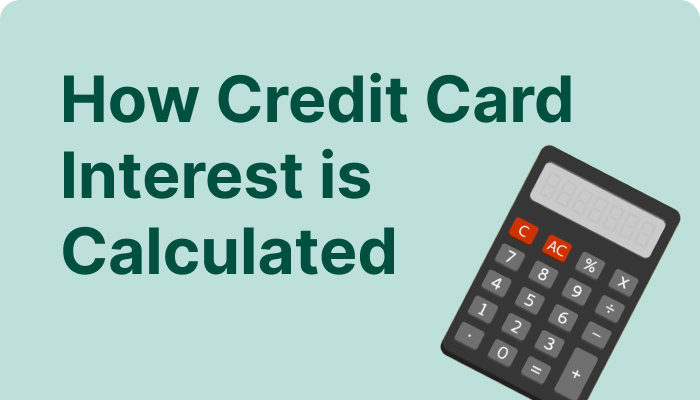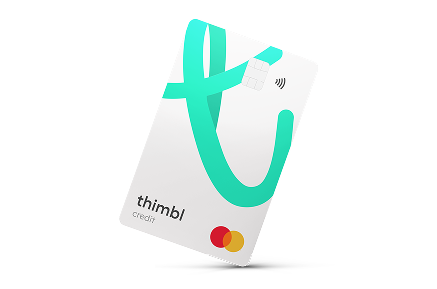How Is Interest Calculated on Credit Cards?
Joe Lytwyn | 28/10/24

Whether you’re applying for your first credit card or simply doing some research before making a decision, ‘how is credit card interest calculated?’ is a frequently asked question.
Our guide aims to help you understand how credit card interest is calculated, while sharing tips on how to avoid it.
What is credit card interest?
How is interest calculated on credit cards? Firstly, it helps to understand exactly what interest is.
In terms of credit cards, interest reflects the cost of borrowing money. It’s an amount charged by the provider, based on the money you owe, and is usually calculated as a percentage.
The money you have spent on your credit card is called the balance; this is the amount you owe to the credit card provider. Each month, you’ll be required to repay at least a minimum amount of your balance back until your borrowing is repaid in full.
Any balance remaining after you have made a repayment will be charged interest on a daily basis.
If you pay the balance in full each month, every month, you won’t be charged any interest. If you’re not able to repay the full balance, paying more than the minimum will reduce the amount of interest accumulated and lower the cost of your borrowing.
What’s the difference between the Annual Percentage Rate (APR) and interest?
- Interest
- APR
The interest rate represents the cost of borrowing, and the amount of interest you’ll pay is calculated as a percentage of your outstanding balance. Your credit card’s rate of interest will be included in the APR, which we’ll talk about in more detail below.
The APR is the overall annual cost of borrowing, and includes interest and any standard fees, such as an account fee, if applicable. It’s important to note that not all fees associated with your credit card are classed as standard and will therefore not be included in the APR. For example, the APR will exclude any late fees you may have been charged.
How is credit card interest calculated?
To work out your daily interest rate, you’ll need to divide your APR by 365 – the number of days in a typical year. Some credit card providers work to 360 days a year; you’ll be able to find this information in your terms and conditions.
How is credit card interest calculated? Here’s an example:
- You have a credit card with a balance of £500 and an APR of 34.5%.
- 34.5% divided by 365 equals a daily interest rate of 0.095%.
- 0.094% of a £500 credit card balance equates to approximately £0.47 in interest a day.
- Over the course of 30 days, your balance will accrue approximately £14.18 in interest.
Example provided for illustrative purposes only.
What’s a credit card interest calculator and how could it help you?
How is interest calculated on credit cards? A credit card interest calculator could help you understand how much you can expect to be charged for borrowing and how long it will take you to repay your balance if you do not continue to spend on your credit card.
To use a credit card interest calculator, you’ll need to input some details, such as your current balance, minimum repayment amount, and interest rate.
How to avoid paying interest
Fortunately, there are several ways to avoid paying interest, or at least to reduce the amount of interest you accrue.
- If you pay your balance in full each month, every month, you won’t be charged interest.
- It may not always be possible for you to clear your balance entirely, but if you’re able to pay more than the minimum amount, your balance will accrue less interest. Simply put, the lower your balance, the less interest you’ll pay.
- Certain types of credit card, such as balance transfer and 0% purchase credit cards, come with an introductory rate of interest. Any outstanding balance left on your credit card after the promotional period expires will be charged interest at your standard rate. If you have a promotional offer on your credit card, be sure to make a note of exactly when the offer comes to an end, so you’re aware of any changes to your minimum monthly repayment amount.
- Where possible, try not to use your credit card to withdraw money from a cash machine, as doing so could damage your credit score.
Can I ask my provider for a lower interest rate?
It might be possible for you to negotiate a lower interest rate with your credit card provider.
Remember, this may not be something your provider offers, and if it is, they’re under no obligation to approve your request. They may be only likely to consider this if you have a proven history of managing your credit responsibly, such as making more than the minimum repayment amount due on time every month.




